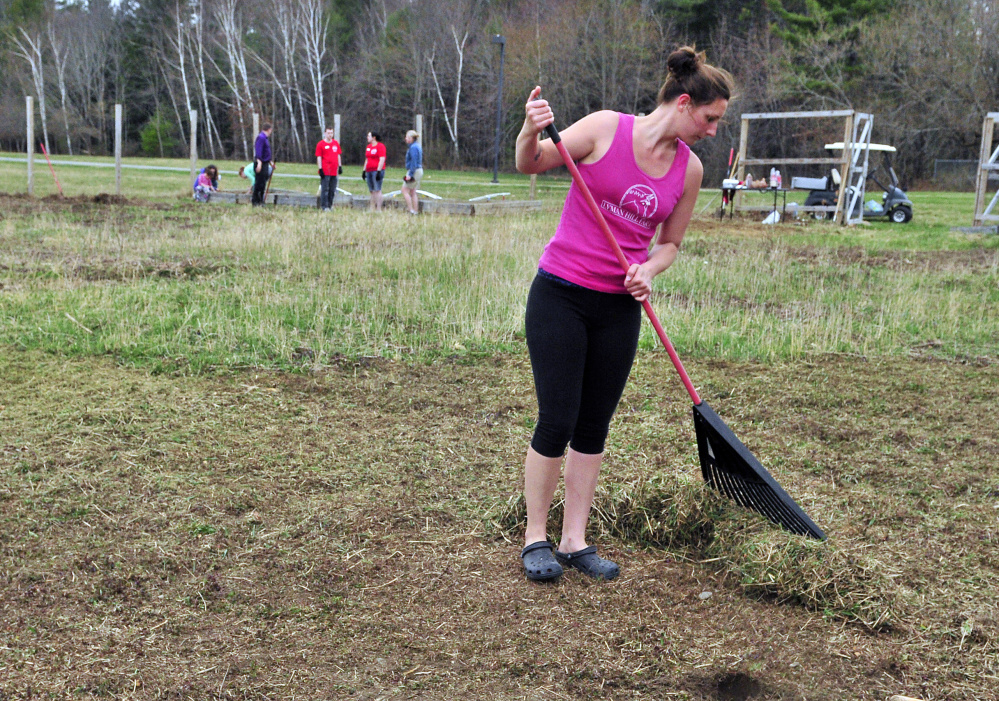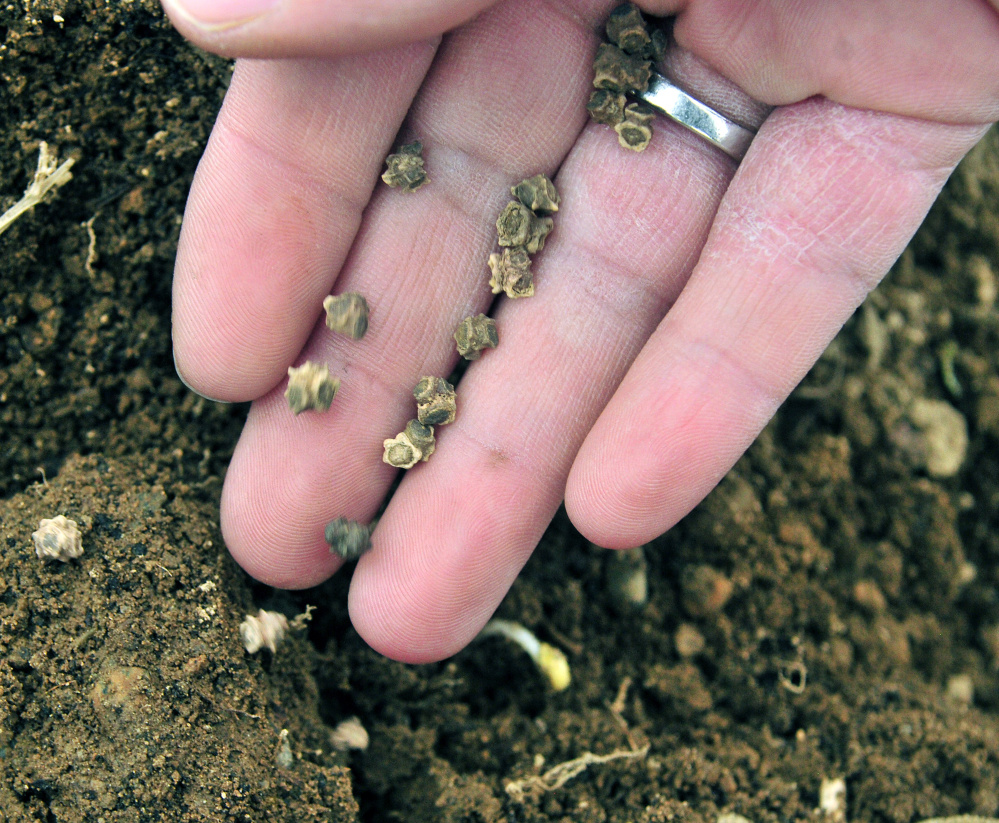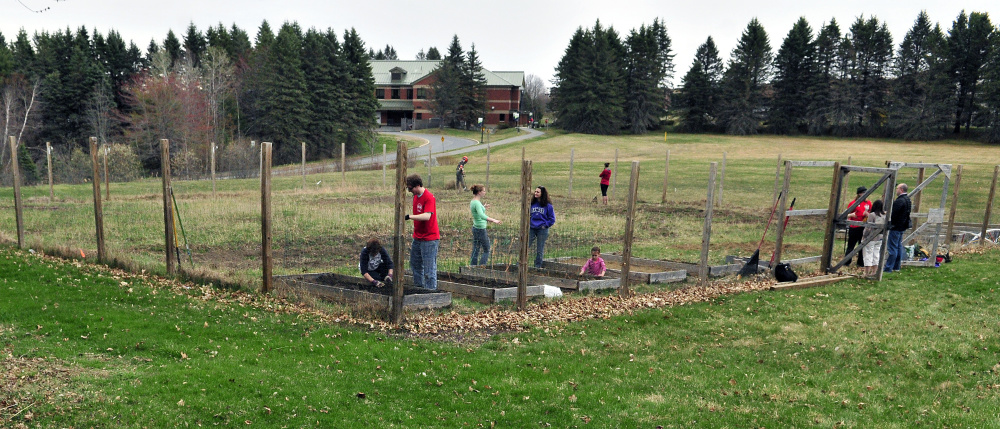AUGUSTA — The community garden at the University of Maine at Augusta is as much about the community as it is the garden.
“We’re not just building a garden,” said Kati Corlew, assistant professor of psychology. “We are trying to create a movement and a community within UMA and within the Greater Augusta area.”
The 3,600-square-foot garden fell fallow last year and is being revitalized this spring as part of a new cultivating community course taught by Corlew and assistant professor of social sciences James Cook.
Ten students are participating in this first year of the program, not only by working outside in the garden, but also in the classroom to create partnerships in the community.
One of the partnerships is with the Augusta Food Bank, which has received all the food from the garden since the garden first began producing it four years ago. Cook said the garden yielded 1,000 pounds of produce its first two years.
Dan Oullette, a junior, was one of several students working in the garden Friday during the campus’ Earth Day activities. Oullette said he had almost no gardening experience before taking the course, and he was attracted by its mission to help others.
“Activism has always spoken to me, and this is empowering,” Oullette said. “The trick is pooling the community together to have that same passion, but it’s starting to come together.”
Cook and Corlew said the goal is to expand to the Bangor campus next year. After that, the program would alternate between campuses.
“We’ve gained a lot just teaching this course, and our next task is to make this small class part of a larger campus presence,” Cook said, “and that’s going to be a challenge.”
Cook said the goal for the weekend was to plant peas, radishes, early carrots and beans in the raised beds while plowing the remaining part of the garden. Over the summer, they hope a couple of students and community members will tend the garden a few times per week
“We benefit when we help others,” Corlew said.
Cook said when people engage in community activities, they cease to become individuals and instead become part of a group and have a sense of belonging.
“That benefits the people participating and it benefits our community,” Cook said.
Corlew and Cook have been teaching students the theories behind social movements and social issues, including hunger, which is a growing concern among college students.
“They are putting those theories in practice by creating the community garden,” Corlew said. “This is not something that is theoretical for them, because more and more college students are dealing with hunger issues. They absolutely understand the importance of food security.”
Elsewhere on campus Friday, UMA’s student government organization was taking part in its UMA Community Clean-Up Day in connection with Earth Day. More than 20 students and faculty and staff members were raking, weeding and cleaning around campus.
Send questions/comments to the editors.





Success. Please wait for the page to reload. If the page does not reload within 5 seconds, please refresh the page.
Enter your email and password to access comments.
Hi, to comment on stories you must . This profile is in addition to your subscription and website login.
Already have a commenting profile? .
Invalid username/password.
Please check your email to confirm and complete your registration.
Only subscribers are eligible to post comments. Please subscribe or login first for digital access. Here’s why.
Use the form below to reset your password. When you've submitted your account email, we will send an email with a reset code.